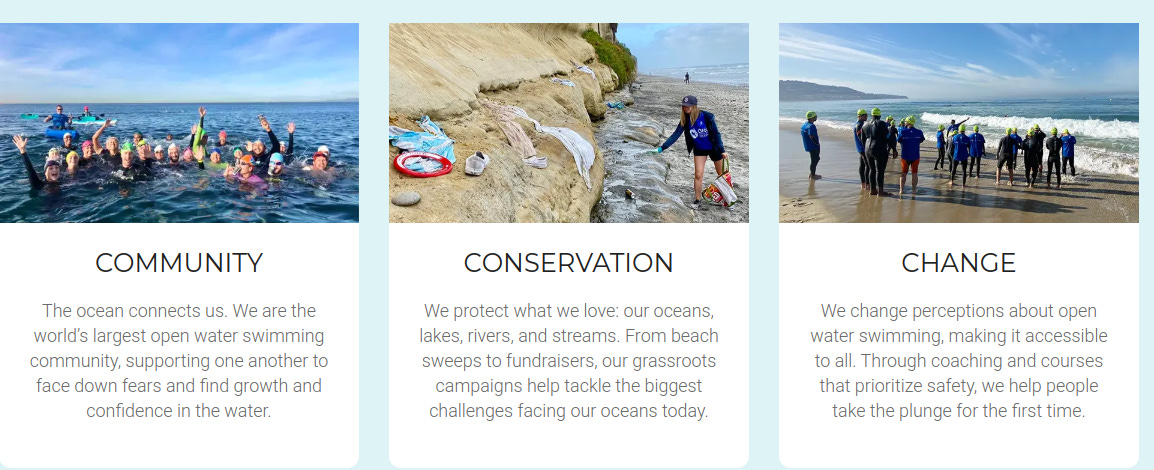
Last week, on April 26, I received a strongly worded cease and desist letter from Raj Mahtani demanding I take down this article on the California non-profit One With the Ocean (OWO), and his client: Bryan Mineo.
It was not the first time Matani would reach out to me on April 26, 2022.
This letter was sent to me by email at 4:54 PM Central Time, according to the Gmail records.
At 4:02 PM Central Time- according to my cell phone’s voicemail system- Matani left what amounted to a cease and desist voicemail to me. That is the podcast on this post.
I declined Matani’s offer in an email I sent back at 6:06 PM Central Time.
Mr. Matani,
As you know, your client and his swimming prowess have been featured in several publications. As such, he is considered a limited purpose public figure for the purposes of any potential lawsuit which means he would need to prove defamation by actual malice, a near impossible standard. Furthermore, California passed anti-SLAPP legislation for exactly these kinds of situations, and California's anti-SLAPP statute is among the toughest in the nation. It provides a quick path to dismissal and I can then collect legal fees from you and your client. It even provides a SLAPP Back provision which may also be an option.
I have however added your dispute of the salary to the end of the article. That is all I will change unless you'd like me to reprint the entire letter.
As I stated, shortly after, I added Matani’s contention about the salary to the end of the original article.
Remarkably, Matani suggested that I was defamatory even though I took screenshots of his client’s deposition where Mineo described his salary.
As in the original, the screenshot included his qualifier that he had to raise enough to make the $150,000 salary, but it was Bryan Mineo who stated his salary was $150,000.
If he made less, that means he didn’t raise enough. The 990s are still not available on-line, and I was using his own testimony to describe his salary. Non-profit tax returns are available on the Guidestar website, and none are yet listed for OWO.
Furthermore, in the email to which Mineo did not respond I asked him to clarify how much money he made with OWO.
Mr. Mineo,
My name is Michael Volpe. I'm an investigative journalist and I run this site.
I'm doing a story into smaller non-profits.
I understand yours is relatively new. I believe your non-profit raised less than $200,000 last year but you made in excess of $100,000 is that accurate? Also, your 990s do not yet appear on Guidestar.org. Is there a reason for that?
I see from your website that you do a beach clean up and and play in the waves. Is there anything else your non-profit does? Did you do a beach clean up in 2021; do you plan on one for 2022?
What is your background in swimming? Is there anything else you would like to add?
It hardly seems reasonable to say any of this is defamatory.
It seems that Mineo agreed because at 8:33 PM Central Time that same day, Mineo left me a voicemail.
“My attorney and I are willing to take a conference call with you,” Mineo said in the voicemail.
He further stated he would be busy that evening and the following day. Instead, he wanted to schedule a conference call for April 28 or later.
It was a remarkable turn of events. In less than five hours, I had received three different contacts from Mineo and his attorney. They ranged from the threat of a suit to the offer of a conference call.
Furthermore, while the original article was published on April 21, 2022, I did not hear from them until about an hour after I left Mineo a voicemail telling him I would do a follow up.
I found this totally inappropriate; the next morning at 7:53 AM Central Time I sent the following email.
Mr. Matani,
I received a call from your client yesterday even, a few hours after my response, rejecting your cease desist letter.
I don't think it's appropriate to communicate this way. This is supposed to be a formal process, not a free for all where you and your client take turns contacting me.
Moving forward, you need to either sue me or go away.
The only other agreement I'll make is a formal recorded interview on my site. That interview can be with you, Mr. Mineo, {or} both of you. If you want to set up a time and date for that, you can email me back here.
If you reject that, you either sue me or both of you stops contacting me.
At 9:55 AM Central Time, Matani responded by email.
Mr. Volpe,
As I stated before, my client and his organization are the good guys who do real and actual work in the community. Actual journalism would have required you to take time to interview sources other than those submitted by your financiers before publishing your article. Nevertheless, my client and I are happy to set the record straight.
Please provide a preliminary list of questions you would like my client to answer as well as dates and times you are available for the interview.
In less than twenty-four hours, we had gone from a lawsuit threat to appearing to agree to an interview. Only, a request for preliminary questions is also improper. I responded back a few minutes later.
Mr. Volpe,
As I stated before, my client and his organization are the good guys who do real and actual work in the community. Actual journalism would have required you to take time to interview sources other than those submitted by your financiers before publishing your article. Nevertheless, my client and I are happy to set the record straight.
Please provide a preliminary list of questions you would like my client to answer as well as dates and times you are available for the interview.
I have not heard back since.
It’s noteworthy that I was helped in this process by an important law called anti-SLAPP. SLAPP stands for Strategic Lawsuit Against Public Participation. Furthermore, California, where Mr. Matani is located, has some of the best anti-SLAPP legislation. Here is more from the Reporters Committee on Free Speech.
California has a strong anti-SLAPP law. To challenge a SLAPP suit in California, defendants must show that they are being sued for “any act . . . in furtherance of the person’s right of petition or free speech under the United States Constitution or the California Constitution in connection with a public issue.
Anti-SLAPP statutes protect journalists and anyone else from frivolous lawsuits when they exercise their first amendment rights when speaking on matters of public interest.
In California, there is a quick, easy, and relatively inexpensive path to use anti-SLAPP to dismiss such suits. Upon dismissal, the defendant then receives their court costs back. It even has a SLAPP Back provision allowing those who win an anti-SLAPP motion to then file their own lawsuit and ask for even more money.
As I discussed with James White, I believe that every state should pass anti-SLAPP legislation and there should also be a federal law as well.
I spoke with Gerry Rodrigues, who I interviewed for the original article, and he told me he received a similar cease and desist letter in 2016.
I interviewed Eney Jones for a follow up podcast and she said Bryan acted in a threatening manner to her.
Often, lawsuits are a means of bullying. Anti-SLAPP provide enormous protections to those targeted with the legal bullying.
Finally, while I have not heard from Bryan or his attorney in over a week, his supporters have been vocal on social media defending him.
Also, check out the interview with Ella Alderete, who described nearly drowning on a swim put on by OWO.
Post Script
Check out the new fundraiser to help investigate non-profits like OWO.





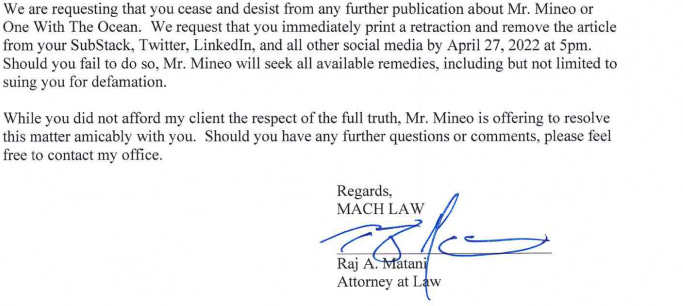

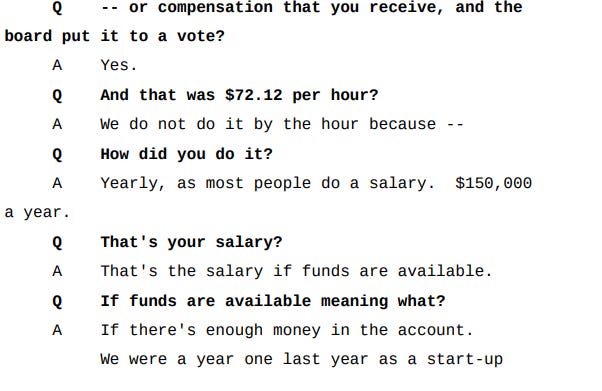

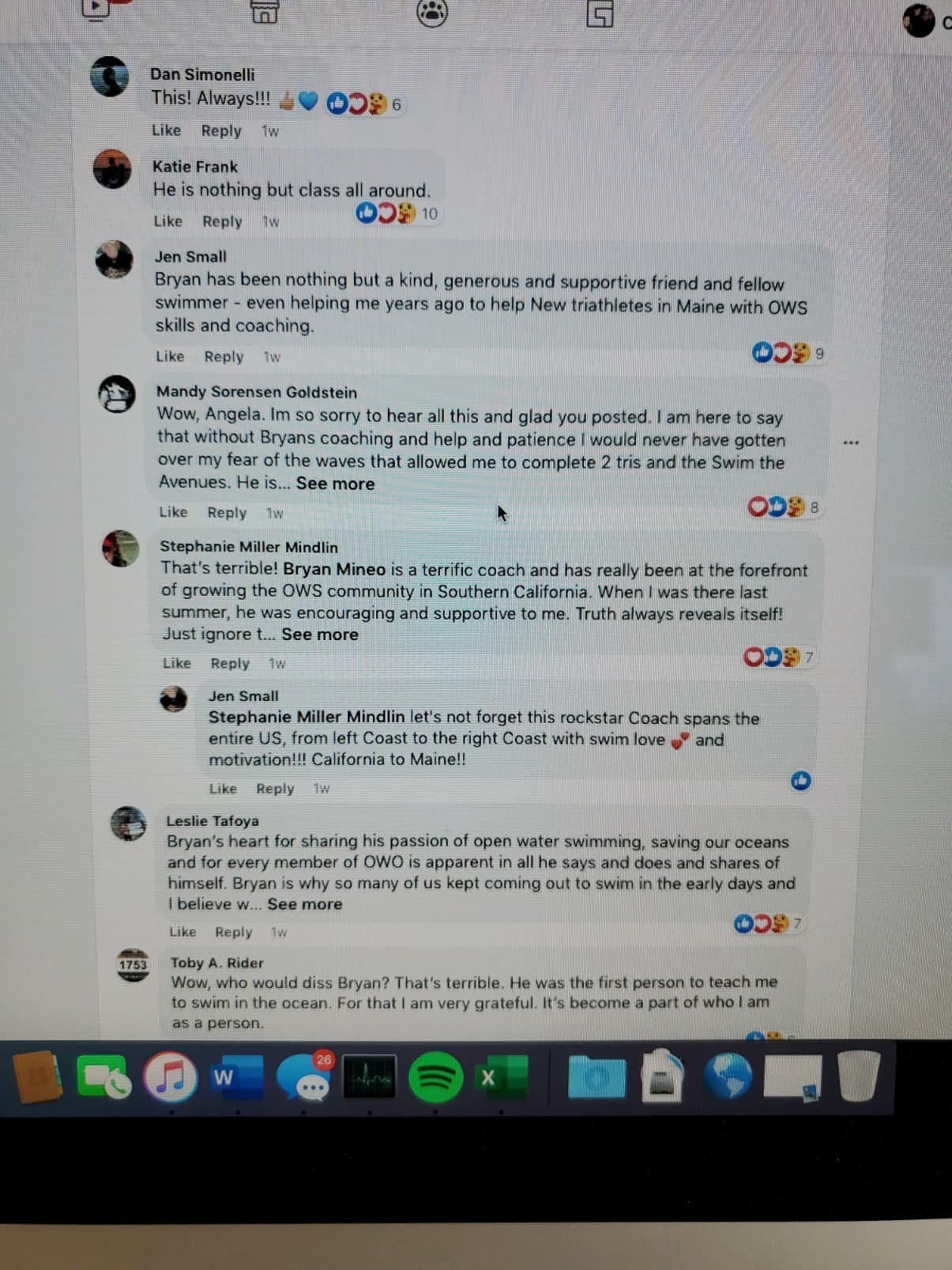
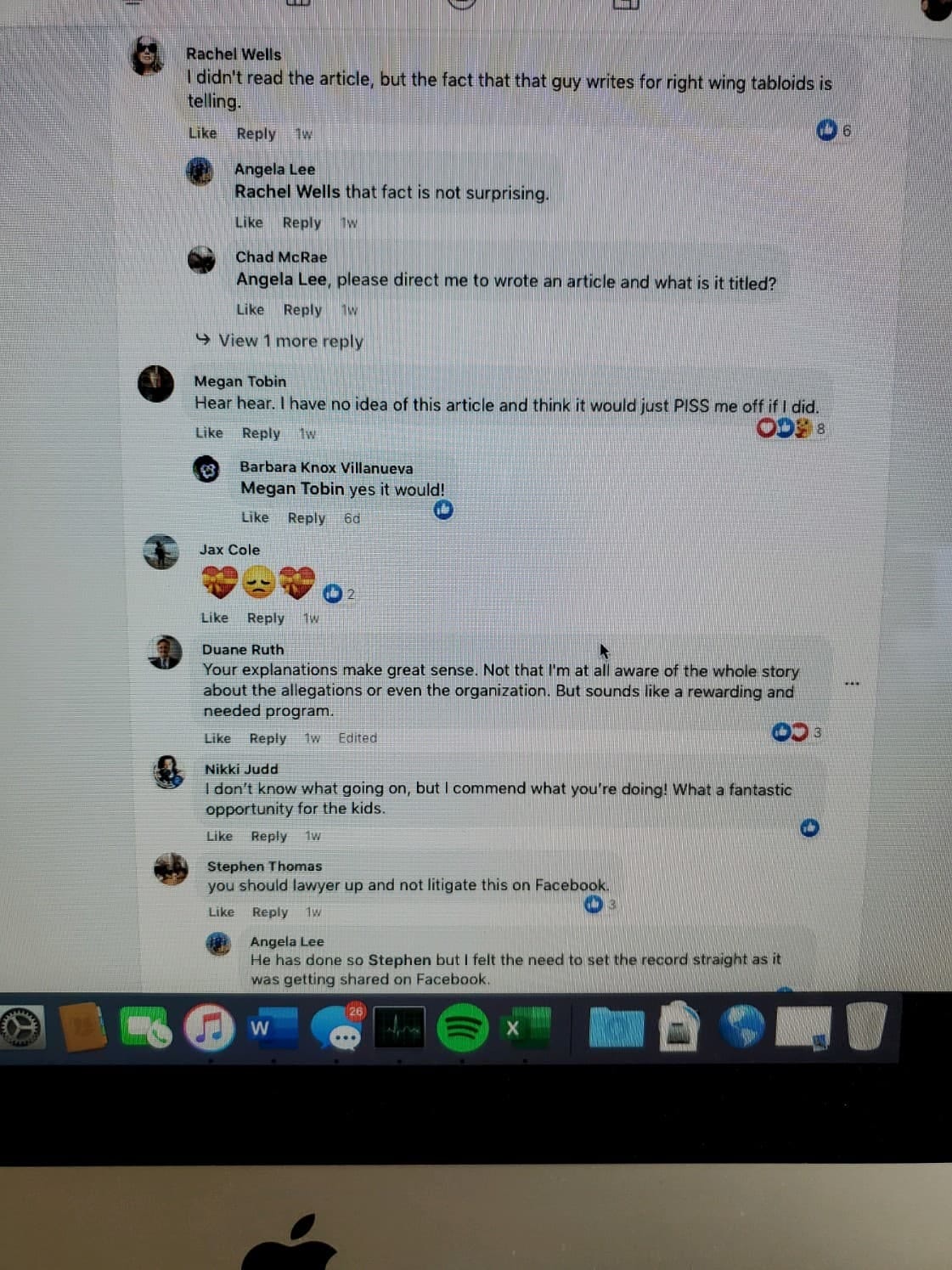










Share this post